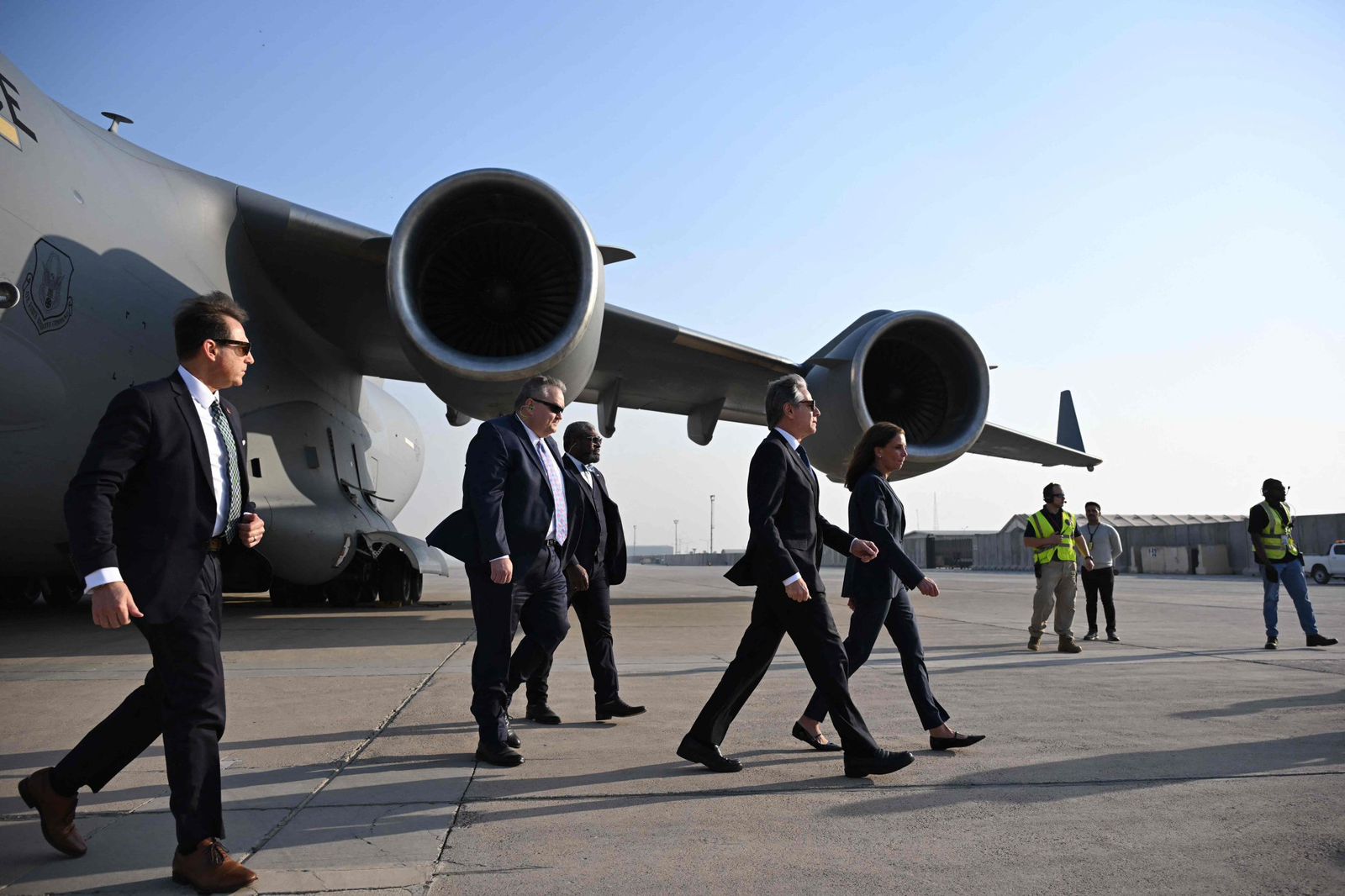Iraq and the region are witnessing rapid movements and visits, some of which are without prior announcement, to confront the developments in Syria, which may create new axes and agreements. Observers believe that they come as an attempt for Iraq to play a role in finding an Arab approach to the Syrian crisis after the Iranian vacuum and the fall of the Bashar al-Assad regime, and the efforts of (Turkey, Israel and the United States of America) to fill this vacuum .
Observers point out that the fall of Assad in Syria was a great shock to the leaders and forces of the Coordination Framework that formed the government of Mohammed Shia al-Sudani, and they have come to realize that Israel has activated successive geographic wars, and Iraq will be the next geography, so they believe that Iraq is moving towards change .
Over the course of three days, Iraq and the region witnessed a round of visits, starting on Tuesday with the visit of the Commander of the US Central Command to Syria, then he headed to Baghdad and met with the Iraqi Prime Minister, Mohammed Shia al-Sudani. After this meeting, al-Sudani quickly headed to Jordan to hold a meeting with King Abdullah II, before returning to Baghdad. As for King Abdullah, after saying goodbye to al-Sudani, he quickly flew to the United Arab Emirates to meet with Mohammed bin Zayed .
Immediately after Al-Sudani returned to Baghdad, a delegation from the US State Department arrived in the Iraqi capital to hold a new meeting with Al-Sudani. Al-Sudani then received a phone call from Saudi Crown Prince Mohammed bin Salman, then received the German Defense Minister and his accompanying delegation, after which Al-Sudani received a phone call from the British Foreign Secretary .
The UN envoy met with the religious authority Ali al-Sistani, then al-Sudani contacted the Egyptian President al-Sisi, after which the US Secretary of State visited Turkey and from there he went to Baghdad and met with al-Sudani .
Regarding these recent and current movements, the head of the Independent Research Group, Dr. Munqith Dagher, believes that they are “due to the repercussions of the situation after the rebels took control in Syria. Everyone fears what is happening in Syria and the possibility of extremist factions threatening the security of Iraq and the region .”
He added, “As for Al-Sudani’s visit to Jordan, Iraq and Jordan share a common border with Syria, in light of the movements of terrorist groups within this geographical area, amidst concerns and circulating intelligence information about the existence of threats, so caution and coordination of positions must be exercised and not work alone .”
Dagher expects that “the region will witness new developments, agreements, security arrangements, and perhaps even a new axis in the coming days .”
For its part, the Iraqi Center for Political Thought says, “The visits are many and mutual, but each of these visits has its own specificity, as Al-Sudani’s quick and fleeting visit to the King of Jordan is linked to developments in the region and the possibility of Iraq playing a role in finding an Arab approach to the Syrian crisis .”
He explains that “the Arab countries have begun to sense that the collapse of Iran and the Assad regime in Syria has created a huge vacuum on the Syrian geographic level, so the Arabs find it in their interest to fill this vacuum in light of the efforts of other countries (Turkey, Israel and the United States of America) to fill this vacuum .”
He points out that “the nature of the communications with the Crown Prince of the Kingdom of Saudi Arabia, Prince Mohammed bin Salman, is also to find this approach, and to call for an Arab conference to develop initiatives and then implement them, and the countries will wait for the response of the transitional government in Syria .”
Regarding the visit of the German Minister of Defense, the center believes that it “comes within the framework of the agreement on the form and path of future cooperation in relation to the international coalition, and also to find a bilateral agreement between Iraq on the one hand and Germany on the other hand, and there are negotiations to conclude bilateral agreements between Iraq and the rest of the countries of the international coalition, and the German Minister of Defense came for this purpose, and also for the issue of an arms deal going to the Kurdistan Region .”
Regarding the recent statements of the leader of the State of Law Coalition, Nouri al-Maliki, and the Secretary-General of the Badr Organization, Hadi al-Amiri, he says, “The fall of Assad was a great shock to the leaders and forces of the Coordination Framework, and for this reason they have come to realize, given that Israel has activated successive geographic wars, that Iraq is the next geography, and for this reason they have become very worried .”
He explains that “this concern comes in conjunction with Israeli threats to target Iraq and the (delayed strike) and the nature of the movement undertaken by the United Nations towards Iraq and the United States of America and the existence of calls to reform the political system. Therefore, the leaders and forces of the Coordination Framework believe that Iraq is moving towards change .”
The leader of the State of Law Coalition, Nouri al-Maliki, stated last Thursday that Iraq and its security forces of all kinds are able to confront the challenges and possibilities of the movement of ISIS and the Baath Party in light of the developments taking place in the region, while he accused Turkey of contributing to the overthrow of the Assad regime in Syria .
The Secretary-General of the Badr Organization, Hadi al-Amiri, said, “What happened in Syria is a Zionist-Turkish project with American blessing, and that the Turks and the Zionists are two sides of the same coin, and that what happened in Syria is a stain of shame on the forehead of the Turks .”
In this regard, political analyst Yassin Aziz says, “What happened in Syria and the fall of Bashar al-Assad’s regime will not be the last stage of the events sweeping the region, which are expected to redraw the political map there .”
Aziz expects that “Iraq will not be outside this equation, with a real threat to the security and stability of Iraq if the Iraqi state, through its official institutions, does not control the official position of Iraq, in not being dragged behind a regional project that is being targeted now .”
He believes that “Al-Sudani’s visits and movements, especially after what the UN representative to Iraq, Mohammed Al-Hassan, carried to the supreme authority, aim to remove any danger that may affect Iraq, with the necessity of a unified Arab move to stop the Israeli attacks on Syrian territory after the fall of Bashar Al-Assad .”
In the same context, political researcher Dr. Ribin Salam says, “Iraq, represented by Al-Sudani, is trying to spare Iraq the fires raging in the region, especially before Trump officially assumes the US presidency on January 25, 2025. “
He added, “Expectations indicate that Trump will sign 25 decisions on the first day, and these first decisions will not include Iraq, but rather are to exert the highest pressure on the Iranian regime, but in the second week they will be on Iraqi funds that go to finance militia activities and support the (resistance) front, so it is expected that Iraqi currency will be restricted, and Iraq may return to the oil-for-food program .”
Salam concludes by saying, “Iraq has three bitter options: tightening the screws on the Central Bank of Iraq, and threats from ISIS and Israel.”






